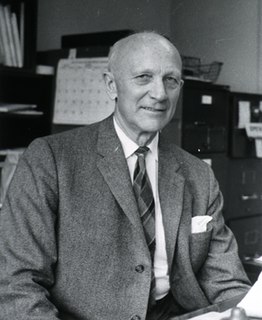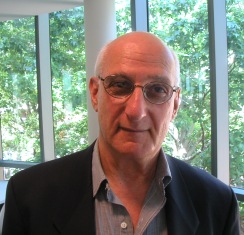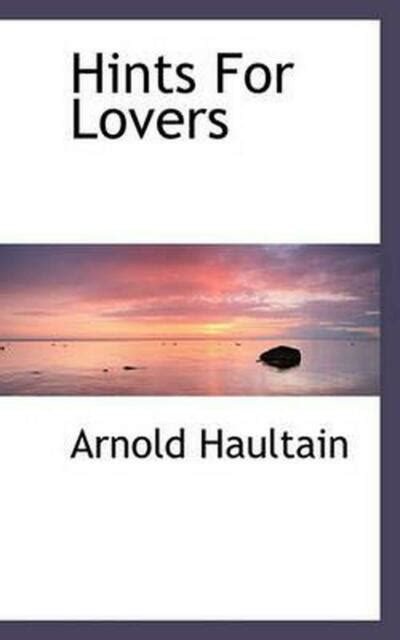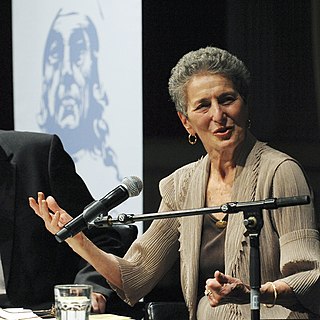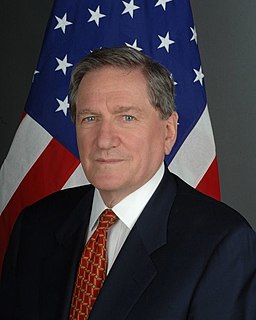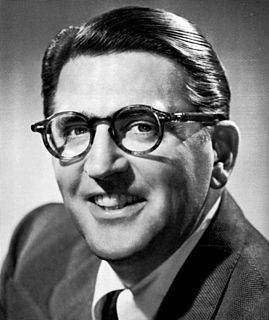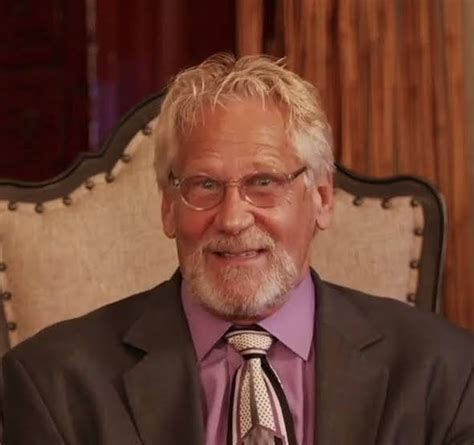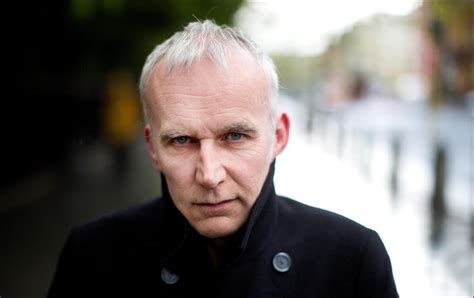Top 520 Astonishing Quotes & Sayings - Page 9
Explore popular Astonishing quotes.
Last updated on April 22, 2025.
Capitalism is chronically unstable.Boom and bust has always marked capitalism in the United States. There were panics in 1785, 1791, 1819, 1857, 1869, 1873, 1907, 1929 and 1987.In economies and politics, as in war, an astonishing number of people die, like the man on the railway crossing, defending their right of way. This is a poorly developed instinct in Switzerland. No country so firmly avows the principles of private enterprise but in few have the practical concessions to socialism been more numerous and varied.
It's often hard to determine, especially in early drafts, whether or not a story has a bona fide complication. Remember this: A complication must either illuminate, thwart, or alter what the character wants. A good complication puts emotional pressure on a character, promoting that character not only to act, but to act with purpose.If the circumstance does none of these things, then it's not a complication at all - it's a situation. This situation, or setup, might be interesting or even astonishing, but it gives the story no point of departure.
They lifted their faces to the astonishing warmth. The sky arched over them, a pale, clear blue. Lina felt as though a lid that had been on her all her life had been lifted off. Light and air rushed though her, making a song, like the songs of Ember, only it was a song of joy. She looked at Doon and saw that he was smiling and crying at the same time, and she realized that she was, too.
In spite of all these disquieting triumphs in the field of natural science, it's astonishing how little man has learned about himself, and how much there is to learn. How little we know about this brain which made social evolution possible, and of the mind. How little we know of the nature and spirit of man and God. We stand now before this inner frontier of ignorance. If we could pass it, we might well discover the meaning of life and understand man's destiny.
The stories my pupils told me were astonishing. One told how he had witnessed his cousin being shot in the back five times; another how his parents had died of AIDS. Another said that he'd probably been to more funerals than parties in his young life. For me - someone who had had an idyllic, happy childhood - this was staggering.
The earth's warmth under me, as I stretch out at night, is astonishing. It is like the warmth of another body that has absorbed the sun all day and now gives out again its store of heat. It is softer, darker than I could ever have believed, and when I take a handful of it and smell its extraordinary odors, I know suddenly what it is I am composed of, as if the energy that is in this fistful of black soil had suddenly opened, between my body and it, as between it and the green stalks, some corridor along which our common being flowed.
So, preferring death to capture, I accomplished the most astonishing deeds, and which, more then once, showed me that the too great care we take of our bodies is the only obstacle to the sucess of those projects which require rapid decision, and vigorous and determined execution. In reality, when you have once devoted your life to your enterprises, you are no longer the equal of other men, or, rather, other men are no longer your equals, and whosoever has taken this resolution, feels his strength and resources doubled.
What astonishing changes a few years are capable of producing! I am told that even respectable characters speak of a monarchical form of government without horror. From thinking proceeds speaking, thence to acting is often but a single step. But how irrevocable and tremendous! What a triumph for the advocates of despotism to find that we are incapable of governing ourselves, and that systems founded on the basis of equal liberty are merely ideal and falacious! Would to God that wise measures may be taken in time to avert the consequences we have but too much reason to apprehend.
One of the most astonishing things about Jesus is that as God he actually chose to come into our fallen, sick, twisted, unjust, evil, cruel, painful world and be with us to suffer like us and for us. Meanwhile, we spend most of our time trying to figure out how to avoid the pain and evil of this world while reading dumb books about the rapture just hoping to get out.
A magical portal opened inside my mind and conducted me into an astonishing world. [...] Before this moment I had divined but had never known with such positiveness that the world is extremely large and that suffering and toil are the companions and fellow warriors not only of Cretan, but of every man. [...] That by means of poetry all this suffering and effort could be transformed into dream; no matter how much of the ephemeral existed, poetry could immortalize it by turning it into song.
Despite being from Ireland, I've always avoided writing about it, for two reasons. For a very small country, Ireland has produced an astonishing number of literary geniuses, and at some level I probably never felt, having left as a toddler, that I had the right to try and add my voice. That's part of it. But I also didn't want to write something that was the equivalent of the Irish theme pub. You find them all over the world. The idea of producing a novel that might replicate that type of ersatz really set my teeth on edge.
Education has a tremendous power on man. Can't we see to which astonishing disciple the people of Sparte have submitted ("s'est plié", Fr.) for centuries, and this with a view to very petty purposes: purely outer greatness, the military predominace of Sparte. This example proves that man can everything on themselves when they want it ("peuvent tout sur eux-mêmes quand ils le veulent", Fr.); therefore it would only be a question of making them will the good.
Economists operate with this image of the homo economicus, the rational economic agent, and while such agents are rare in the wider world, they are common in economics departments. Exemplifying the homo economicus paradigm, economists typically choose their research projects and hypotheses so as to promote their own careers, to maximize their lifetime income. This explains the astonishing pressures toward conformity in academic economics: how deviant views (except those by a few who have already achieved stardom) get crushed by an army of conformists.
For me as a midfielder, Paul Scholes was the best possible teacher. When people ask me my hardest opponent, I always refer to Paul in training. Facing him improved me so much because his astonishing quality gave me something to aim for. He never gave the ball away, he could nutmeg you, he could make you look a fool, his range of passing was remarkable, his touch and awareness, everything was top notch. Seeing Scholesy made you stand back and realize you had a long way to go, because he was awesome.
For woman's chief want is to feel that she is wanted. Therefore it is that with women, cruelty is more easily borne than coldness. Indeed, It is astonishing how much downright cruelty a woman will stand from the man she loves or has loved. What women admire is a subtle combination of forcefulness and gentleness. If a woman has to choose between forcefulness and gentleness, always she will sacrifice the latter.
If greatness of purpose, smallness of means, and astonishing results are the three criteria of a human genius, who could dare compare any great man in history with Muhammad? The most famous men created arms, laws, and empires only. They founded, if anything at all, no more than material powers which often crumbled away before their eyes. This man moved not only armies, legislations, empires, peoples, dynasties, but millions of men in one-third of the then inhabited world; and more than that, he moved the altars, the gods, the religions, the ideas, the beliefs and the souls.
When someone really hears you without passing judgment on you, without trying to take responsibility for you, without trying to mold you, it feels damn good. . . . When I have been listened to and when I have been heard, I am able to re-perceive my world in a new way and to go on. It is astonishing how elements which seem insoluble become soluble when someone listens. How confusions which seem irremediable turn into relatively clear flowing streams when one is heard.
Donald Trump praised Russia's strong man, Vladimir Putin, even taking the astonishing step of suggesting that he prefers the Russian president to our American president. I was just thinking about all of the presidents that would just be looking at one another in total astonishment. What would Ronald Reagan say about a Republican nominee who attacks America's generals and heaps praise on Russia's president? I think we know the answer.
To have the external pressure of a job removed is very astonishing. Your own will is now your only motor and it has no horse-power. Sometimes I think that perhaps the most competent business men, and lawyers and doctors, who must be at the office at nine o'clock every morning, do not realize this and take more credit for initiative and industry than they deserve. And it is why all the bright women of the world, who if more were expected of them, might do important work, but who instead have a chronic feeling of ineffectiveness and sloth.
Carla Hesse has given us an astonishing new look at women's struggle for independent expression and moral autonomy during the French Revolution and afterward. Denied the political and civil rights of men, literary women plunged into the expanded world of publication, answering the men's philosophical treatises with provocative novels about women's choices and chances. Lively and learned, The Other Enlightenment links women from Madame de Stael to Simone de Beauvoir in an alternate and daring path to the modern.
I dread our own power, and our own ambition; I dread our being too much dreaded... We may say that we shall not abuse this astonishing, and hitherto unheard-of-power. But every other nation will think we shall abuse it. It is impossible but that, sooner or later, this state of things must produce a combination against us which may end in our ruin.
We need to reverse three centuries of walling the for-profit and non-profit sectors off from one another. When you think for-profit and non-profit, you most often think of entities with either zero social return or zero return on capital and zero social return. Clearly, there's some opportunity in the spectrum between those extremes. What's missing is the for-profit finance industry coming in to that area. Look at the enormous diversity of the for-profit financial industry as opposed to monolithic nature of the non-profit world; it's quite astonishing.
MEMRI allows an audience far beyond the Arabic-speaking world to observe the wide variety of Arab voices speaking through the media, schoolbooks, and pulpits to their own people. What one hears is often astonishing, sometimes frightening, and always important. Most importantly, it includes the newly-emerging liberal voices of reform and hope, as well as disturbing echoes of ancient hatreds. Without the valuable research of MEMRI, the non-Arabic speaking world would not have this indispensable window.
Joss Whedon writes beautiful drama. His sensitivity and his sense of drama and scenes are pretty exceptional. There's no one else writing like him, really, in sci-fi and TV. That's not to say there are no astonishing writers on TV. I was nervous about coming to America and playing an English person who speaks very English when all the writers are American, because it's a very particular thing to imitate, and if it's badly imitated, it sounds painfully contorted and silly. And he writes very well for English people. It was Joss Whedon who persuaded me.
Regarding The Music Man, Jay Nordlinger wrote: The Music Man (for which Willson also wrote the lyrics) is an astonishing creation. It came in a spurt of brilliance. It is shot through with originality, verve, and-why not go all the way?-genius. People love it, can't get enough of it, can't stop performing it-and they are not wrong. For closing in on a half- century now, The Music Man has been performed continually, in every American city, town, and village, and in other parts of the world as well, not excluding Peking.
The observations and encounters of a solitary, taciturn man are vaguer and at the same times more intense than those of a sociable man; his thoughts are deeper, odder and never without a touch of sadness. Images and perceptions that could be dismissed with a glance, a laugh, an exchange of opinions, occupy him unduly, become more intense in the silence, become significant, become an experience, an adventure, an emotion. Solitude produces originality, bold and astonishing beauty, poetry. But solitude also produces perverseness, the disproportionate, the absurd and the forbidden.
Why did the consensus of Christian churches not only accept these astonishing views but establish them as the only true form of Christian doctrine? . . . these religious debates - questions of the nature of God, or of Christ - simultaneously bear social and political implications that are crucial to the development of Christianity as an institutional religion. In simplest terms, ideas which bear implications contrary to that development come to be labeled as 'heresy'; ideas which implicitly support it become 'orthodox.'
When that devil's bullet lodged itself inside the body of Martin Luther King, he had already begun an astonishing mobilization of poor, Black, white, latino Americans who had nothing to lose. They would challenge our government to eliminate exploitative, merciless, and war-mongering policies, nationwide, or else "tie up the country" through "means of civil disobedience." Dr. King intended to organize those legions into "coercive direct actions" that would make of Babylon a dysfunctional behemoth begging for relief. Is it any wonder he was killed?
Conscience is the voice of the soul, the passions are the voice of the body. Is it astonishing that often these two languages contradict each other, and then to which must we listen? Too often reason deceives us; we have only too much acquired the right of refusing to listen to it; but conscience never deceives us; it is the true guide of man; it is to man what instinct is to the body; which follows it, obeys nature, and never is afraid of going astray.
As my body lay dead on that stretcher (he later recovered from being struck by lightning attracted by his cell phone), I was reliving every moment of my life, including my emotions, attitudes, and motivations. The depth of emotion I experienced during this life review was astonishing. Not only could I feel the way both I and the other person had felt when an incident took place, I could also feel the feelings of the next person they reacted to. I was in a chain reaction of emotion, one that showed how deeply we affect one another.
Sven's actual results on the park were not quite good enough to make him a hero, and not quite bad enough to get him the sack, so he left the gentlemen of the press with something of a void. And they abhor a void. Soon the discovery that Sven was in fact a hammer-man of legendary proportions filled the void, until the media came to realise that Sven was that rare thing, a man whose astonishing success with women somehow didn't make him more interesting.
It is very difficult in quarreling to be certain in either one what the other one is remembering. It is very often astonishing to each one quarreling to find out what the other one was remembering for quarreling. Mostly in quarreling not any one is finding out what the other one is remembering for quarreling, what the other one is remembering from quarreling.
In most of the world, we have only small remnants of the wildlife that once existed. Africa has the most astonishing wildlife still. Now Africa is modernizing. In the next twenty years, Africa is modernizing economically, and one of two things is going to happen. Either Africa will be just like the rest of the world and it's say goodbye to wildlife. Or, we can learn from the mistakes made in the rest of the world.
The costs of an ignorance of science are nor just practical ones like misbegotten policies, forgone cures, and a unilateral disarmament in national competitiveness. There is a moral cost as well. It is an astonishing fact about our species that we understand so much about the history of the universe. the forces that make it tick, the stuff it's made of; the origin of living things, and the machinery of life. A failure to nurture this knowledge shows a philistine indifference to the magnificent achievements humanity is capable of; like allowing a great work of art to molder in a warehouse.
Because today we live in a society in which spurious realities are manufactured by the media, by governments, by big corporations, by religious groups, political groups... So I ask, in my writing, What is real? Because unceasingly we are bombarded with pseudo-realities manufactured by very sophisticated people using very sophisticated electronic mechanisms. I do not distrust their motives; I distrust their power. They have a lot of it. And it is an astonishing power: that of creating whole universes, universes of the mind. I ought to know. I do the same thing.
An immune system of enormous complexity is present in all vertebrate animals. When we place a population of lymphocytes from such an animal in appropriate tissue culture fluid, and when we add an antigen, the lymphocytes will produce specific antibody molecules, in the absense of any nerve cells. I find it astonishing that the immune system embodies a degree of complexity which suggests some more or less superficial though striking analogies with human language, and that this cognitive system has evolved and functions without assistance of the brain.
It's funny. When we were alive we spent much of our time staring up at the cosmos and wondering what was out there. We were obsessed with the moon and whether we could one day visit it. The day we finally walked on it was celebrated worldwide as perhaps man's greatest achievement. But it was while we were there, gathering rocks from the moon's desolate landscape, that we looked up and caught a glimpse of just how incredible our own planet was. Its singular astonishing beauty. We called her Mother Earth. Because she gave birth to us, and then we sucked her dry.
Truth is always stranger than fiction. We craft fiction to match our sense of how things ought to be, but truth cannot be crafted. Truth is, and truth has a way of astonishing us to our knees. Reminding us, that the universe does not exist to fulfill our expectations. Because we are imperfect beings who are self-blinded to the truth of the world’s stunning complexity, we shave reality to paper thin theories and ideologies that we can easily grasp – and we call them truths. But the truth of a sea in all it’s immensity cannot be embodied in one tidewashed pebble.
I have often wondered how anyone who does not read, by which I mean daily, having some book going all the time, can make it through life. Indeed if I were required to make a sharp division in the very nature of people, I would be tempted to make it there: readers and nonreaders of books... It is astonishing how the presence or absence of this habit so consistently characterizes an individual in other respects; it is as though it were a kind of barometer of temperament, of personality, even of character. Aside from that, for me it constituted something like sanity insurance.



